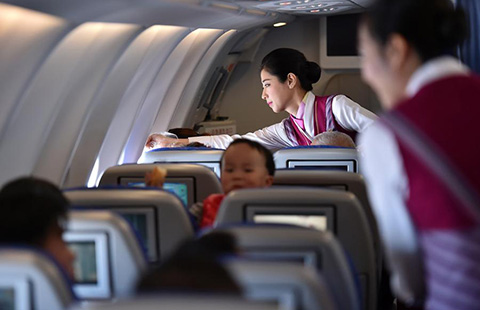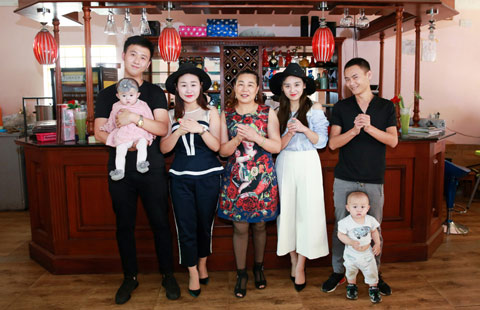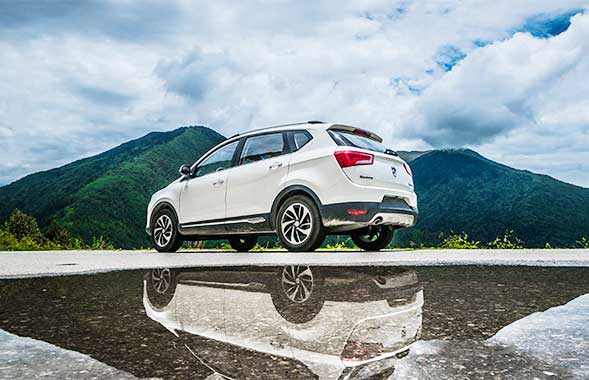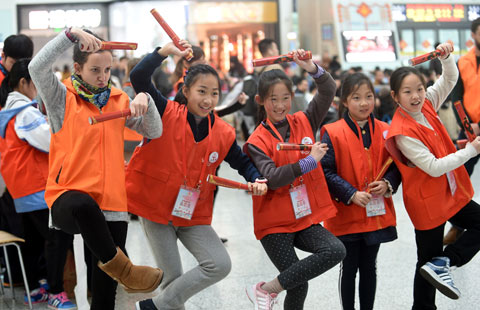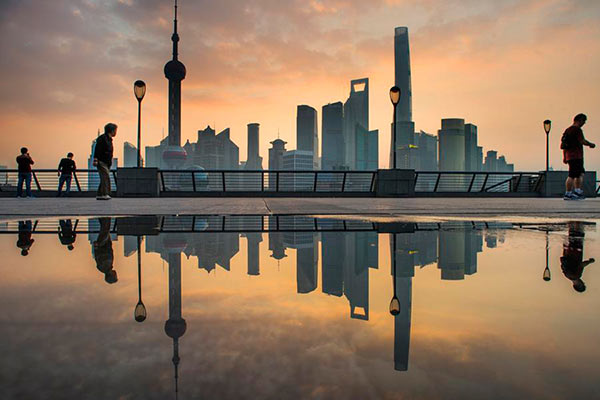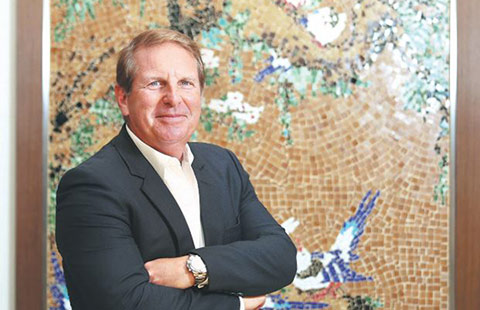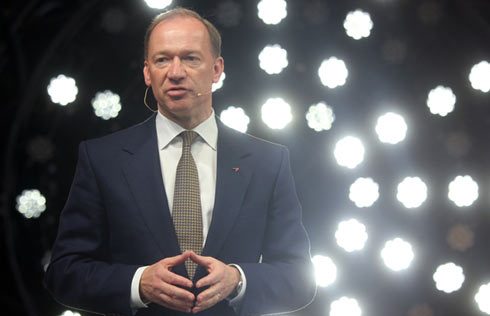SUVs, minivans set to scorch Chinese roads
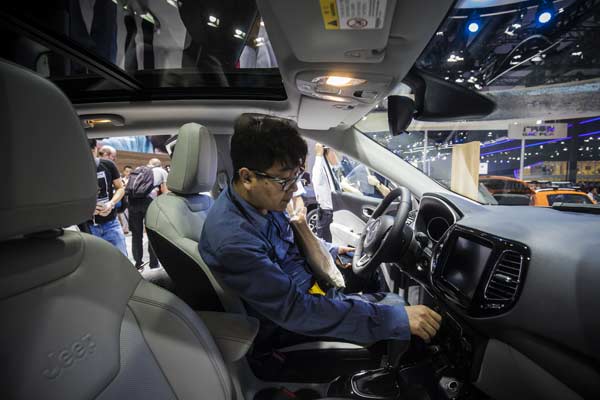 |
|
A visitor sits inside a Fiat Chrysler Automobiles NV Jeep Compass sport utility vehicle, manufactured by Guangzhou Automobile Group Co, on display at the China (Guangzhou) International Automobile Exhibition in Guangzhou on Nov 19, 2016. [Photo/Agencies] |
Li Yechen waited four months for his sold-out SUV to arrive at a Chinese auto dealer. He was determined to buck tradition and bypass the trusty sedan that's a hallmark of the nation's highways.
The 21-year-old building designer from Hangzhou bought the SUV from Geely Automobile Holdings Ltd for 163,000 yuan ($23,500). The Bo Yue model he chose comes with warning systems for forward collisions and for abrupt lane changes, features that swayed Li to go bigger.
"With all these technologies, I can park and drive the SUV as easily as a sedan," he said. "The sedans in the same price range these days are lagging behind in the technology features."
Chinese consumers are expected to buy more SUVs and minivans than sedans this year for the first time, according to projections from the China Passenger Car Association, as the combination of sophisticated vehicles, rising incomes, lower oil prices and the second-child policy triggers a fundamental shift in the world's biggest personal vehicle market.
SUV country
SUV and minivan sales may grow by double-digit percentages this year, while sedan sales may decline by 4.7 percent, according to a Bloomberg survey of three analysts.
SUVs now make up a greater percentage of auto sales in China than anywhere else, according to research company Sanford C. Bernstein. From September through November 2016, almost four of every 10 passenger vehicles sold in the country were SUVs.
That's prompting domestic and foreign automakers to flood their showrooms with new models. Last year, there were 105 SUV models on the market that sold an average of more than 1,000 units a month, compared with 58 just two years earlier, the researcher said.
Geely, owned by billionaire Li Shufu, sells about 20,000 of its Bo Yue SUVs every month. The Hangzhou-based automaker introduced three SUV models, including the Bo Yue, last year and saw sales skyrocket by 50 percent to 765,851 vehicles. That encouraged the company to set its sales target for this year at 1 million units.
"SUVs have become much more than a traffic tool but a lifestyle statement," said Ashley Sutcliffe, a spokesman for Geely. "They are larger, have more space than the equivalent-segment sedan and denote power and prestige."
Record sales
The switch comes as China dealerships sold 23.9 million cars, SUVs and minivans last year, representing a 16 percent increase from the year before, according to the China Passenger Car Association. It was the 26th straight year of record sales.
That sales streak is losing momentum, with the market poised to grow at just a third of last year's pace because a looming increase in the sales tax prompted many consumers to buy their vehicles before Dec 31.
Sales of SUVs are expected to increase by 22 percent this year and minivans by 13 percent, according to the analysts surveyed. That means 116 units of SUV and minivans will be sold for every 100 sedans sold in the country.
The demand is helped by economic growth of 6.7 percent during the first three quarters of last year, according to data compiled by Bloomberg. Through September, disposable income per capita rose 6.3 percent from a year earlier to 17,735 yuan, according to the National Bureau of Statistics.
It's also cheaper to drive, giving buyers more latitude about a vehicle's fuel efficiency. Retail gasoline prices have fallen 23 percent since 2014, according to data compiled by Bloomberg.
Bigger vehicles
Automakers also are boosting production of larger vehicles in anticipation of a baby boom: Chinese families will need more car seats after the government announced a relaxation of its one-child policy in 2015.
"The Chinese family is growing bigger with a second child, and they love spacy SUVs even more," said Xu Heyi, chairman of Beijing Automotive Group Co.
"The robust demand for SUVs will continue this year and over the next couple of years."
BAIC, owned by the local government of Beijing, has joint ventures with Daimler AG and Hyundai Motor Co Sales of the company's own brands increased 36 percent in 2016, with SUV sales increasing by six times, according to a company filing.
'Ongoing shift'
Yet the boom isn't limited to domestic makers. General Motors Co's SUV deliveries in China surged 45 percent from a year earlier, with the Buick Envision and Baojun 560 among its most-popular models, said Sophie Hou, a Shanghai-based spokeswoman.
"There is an ongoing shift of mix in the market from cars to SUVs, and we think that will continue, particularly as new technology allows the SUVs to be very fuel-efficient," Hou said in an email.
South Korea's Hyundai and Kia Motors Corp, which saw their overall sales shrink for the first time in eight years in 2015, are tweaking the lineup of vehicles in their biggest market to capitalize on the SUV boom.
Deliveries of Hyundai's sedans in China declined 2 percent, yet those of its three SUVs jumped 30 percent.





